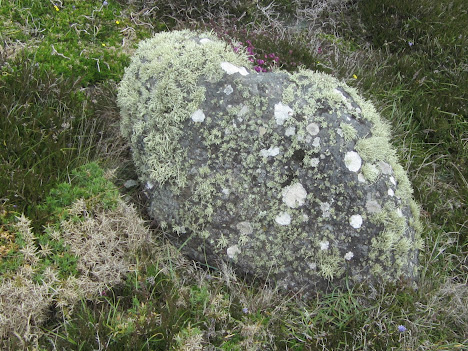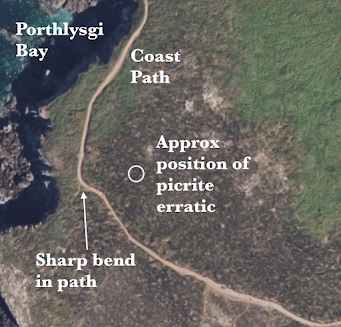Great is the rejoicing in Heaven when something lost without trace is found again and reinstated in the record books. Anyway, that is what had happened today. I went out and had a hunt all over a rather extensive patch of gorse and heather dry heath, on a very hot day, treading rather gingerly because this was perfect adder habitat and having discovered that the marked Google location was a long way out......
The boulder is quite small and insignificant, projecting just 30 cm above the surrounding vegetation and difficult to see because it is dark grey or black in colour and is well covered with assorted picturesque lichens and heather. The dimensions of the well-rounded boulder are c 75 cm x 45 cm x 45 cm. It looks very dense and heavy --rather like basalt. Parts of the surface are quite smooth, and parts are rough and "knobbly". I don't know of any other outcropping rocks in Pembrokeshire that look like this -- and I understand why the old geologists speculated that it might have come from Scotland or North Wales.
The best "candidate" provenance location is maybe Anglesey. See this excellent RIGS note relating to picrite erratics on the island:
https://www.geomon.co.uk/llanerchymedd-rigs-site/
Once upon a time the boulder was in a cage, to stop people from bashing bits off it -- now it has been set free in a different position, and I can see no damage on the surface. Let's hope it stays that way.
This is an outcrop of the St Davids PreCambrian granophyre -- white, flinty and very different from the blackish picrite erratic........






No comments:
Post a Comment
Please leave your message here